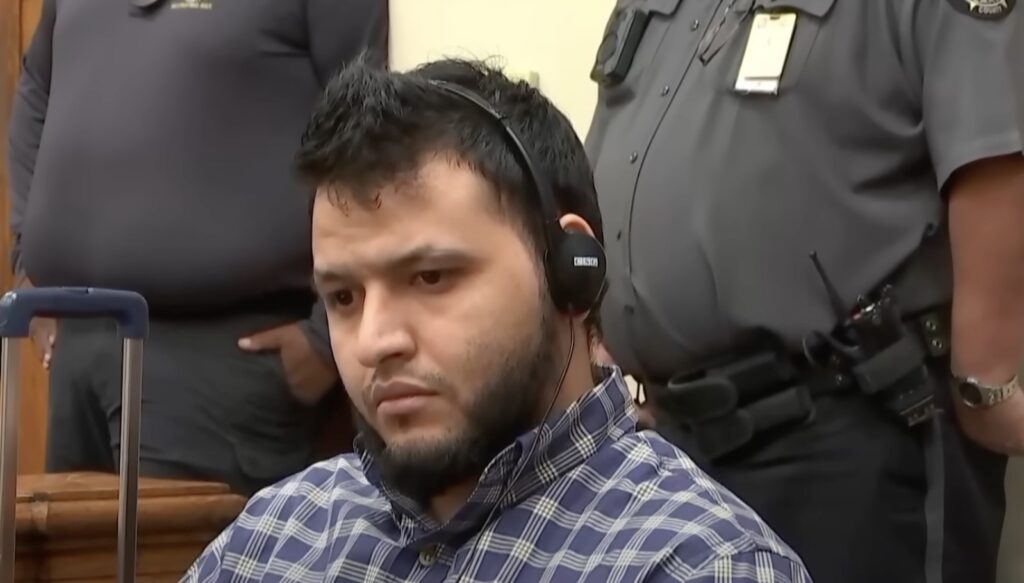In a tragic and concerning incident, the murder of 22-year-old Laken Riley, a University of Georgia student, has brought to light the complexities surrounding the U.S. immigration policies under the Biden-Harris administration. On trial for this brutal crime is Jose Ibarra, a 26-year-old illegal immigrant from Venezuela, who is allegedly linked to the Tren de Aragua gang. The courtroom testimonies reveal a harrowing account of violence, with Riley reportedly fighting for her life before being killed in an act of unimaginable brutality. The case has drawn significant attention, not only for the violent nature of the crime but also for the implications it has on the current immigration policies that the administration has put in place.
According to testimonies in court, Ibarra’s illegal entry into the U.S. was facilitated by lax border policies implemented in the recent administration. His criminal history includes charges of voyeurism, and the violation of multiple laws has raised serious questions about immigration enforcement. Despite the tragedies resulting from such incidents, President Biden has faced criticism for his handling of the situation, with claims that he failed to even acknowledge Riley’s name or properly address the illegal status of her murderer during public statements. This has further fueled the narrative that the administration is out of touch with the consequences of its policies and the impact they have on American citizens.
Additionally, details emerging from the trial indicate that Ibarra and his former roommate, Rosebeli Flores-Bello, were flown from New York to Georgia shortly before the murder, as part of a program aimed at aiding migrants moving to areas with perceived job opportunities. This flight was funded by federal taxpayer dollars, raising concerns about how government resources are being utilized to support individuals who may pose threats to public safety. Flores testified about their relocation process, highlighting how they were directed to Athens, Georgia, based on information from Ibarra’s brother regarding job opportunities, ultimately leading to tragedy.
The murder of Laken Riley has sparked outrage and led local officials in New York City to deflect responsibility by blaming the immigration system, rather than addressing how the program may have inadvertently contributed to this tragic outcome. Critics of the Biden-Harris administration argue that this incident exemplifies the failures of a broken immigration system. The claims are that such failed policies have a direct connection to criminal activities, leading to senseless deaths. The assertion is made that this and similar crimes should be contextualized within the larger narrative of mismanagement at the federal level, where lax border controls continue to invite illegal immigration and, by association, crime.
In a broader perspective, many believe that the immigration policies under the current administration are complicit in allowing criminal elements to infiltrate the country. They argue that an alarming number of illegal immigrants, many of whom are flying into various states under government-sponsored programs, warrant serious examination. Authorities allege that there is a concealment of these activities, pointing to the covert operations in the dead of night transporting immigration cases, emphasizing the desperation to avoid media scrutiny and public awareness about the security risks posed.
As various figures estimate that hundreds of thousands of illegal immigrants have been relocated around the country via taxpayer-funded travel, the urgency of addressing these matters becomes paramount. Calls for accountability and transparency have mounted, with many urging the administration to revise its policies regarding illegal immigration. The tragic fate of Laken Riley continues to serve as a focal point in this ongoing conversation, highlighting the grave responsibilities that come along with immigration reform amidst the challenges faced by American society in ensuring the safety and security of its citizens.

